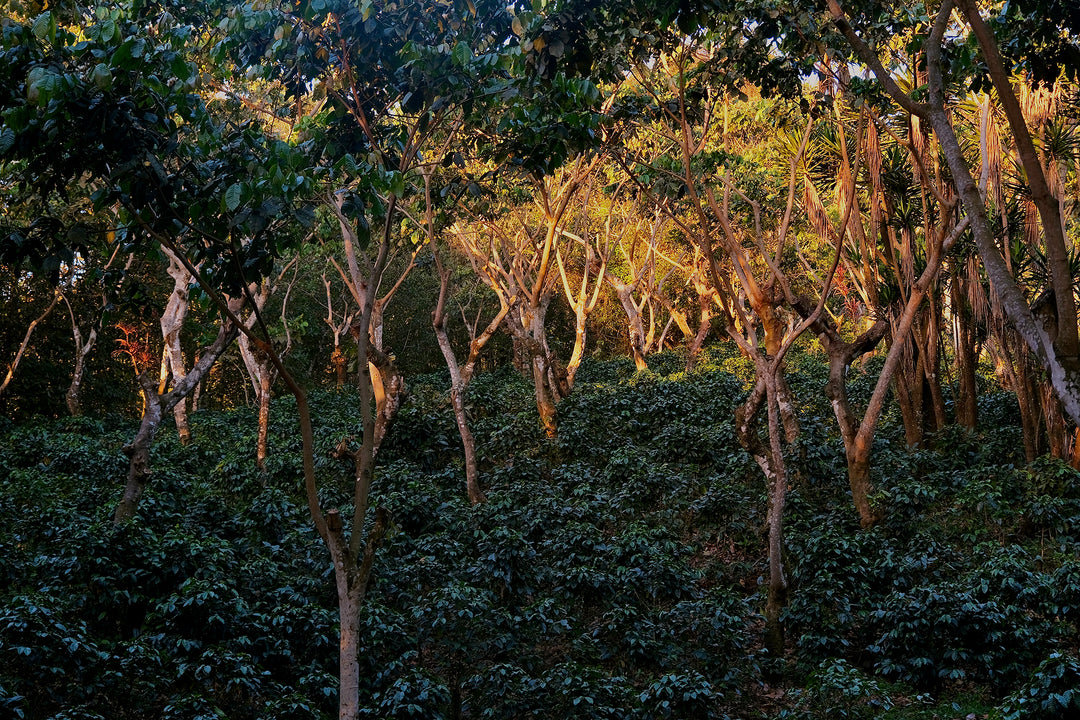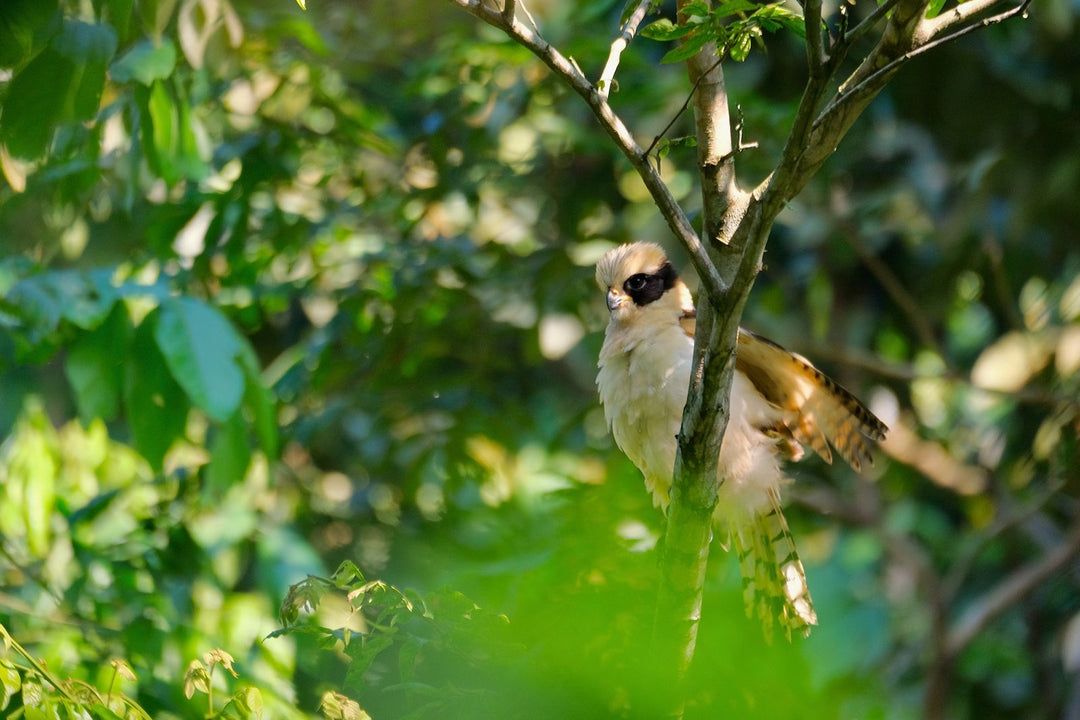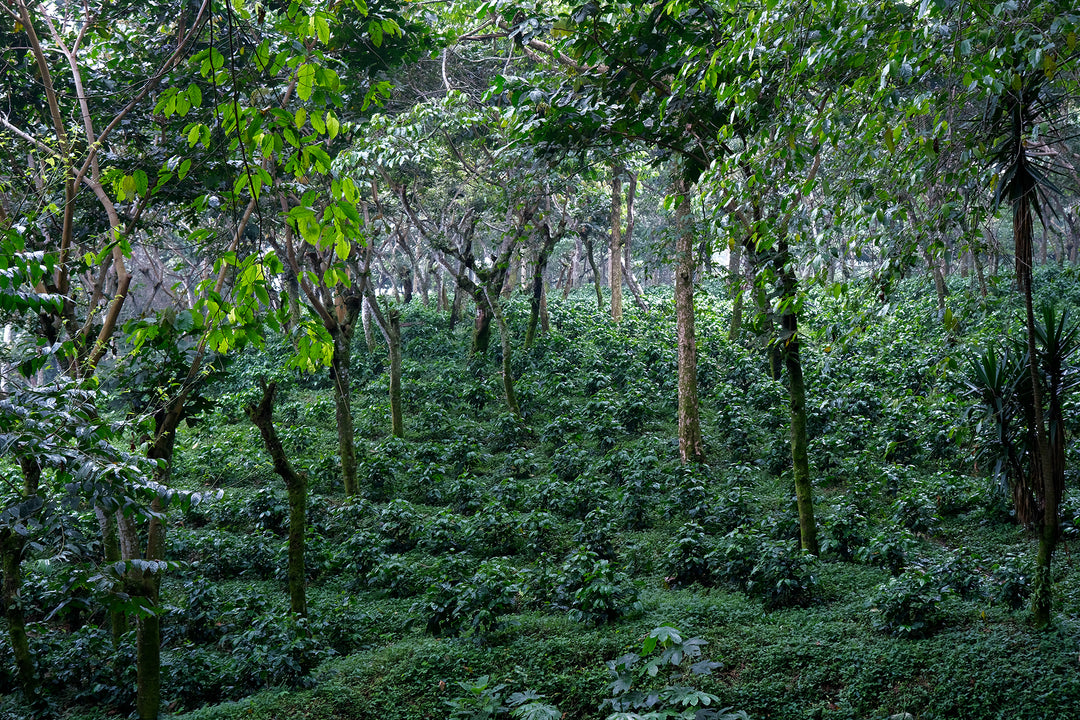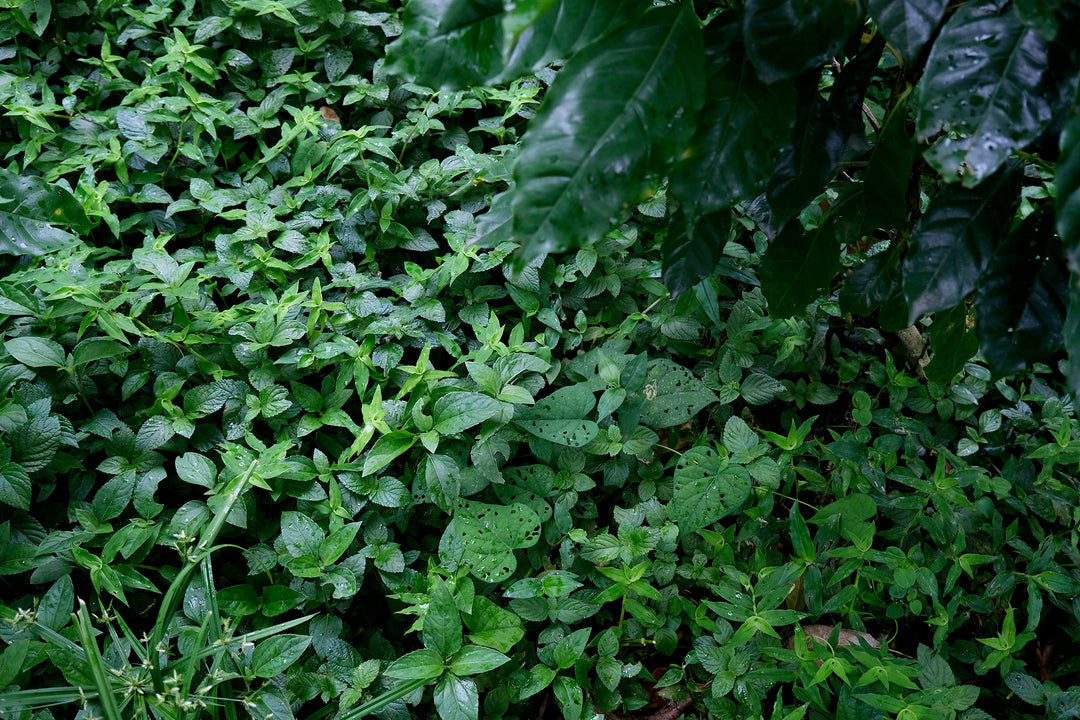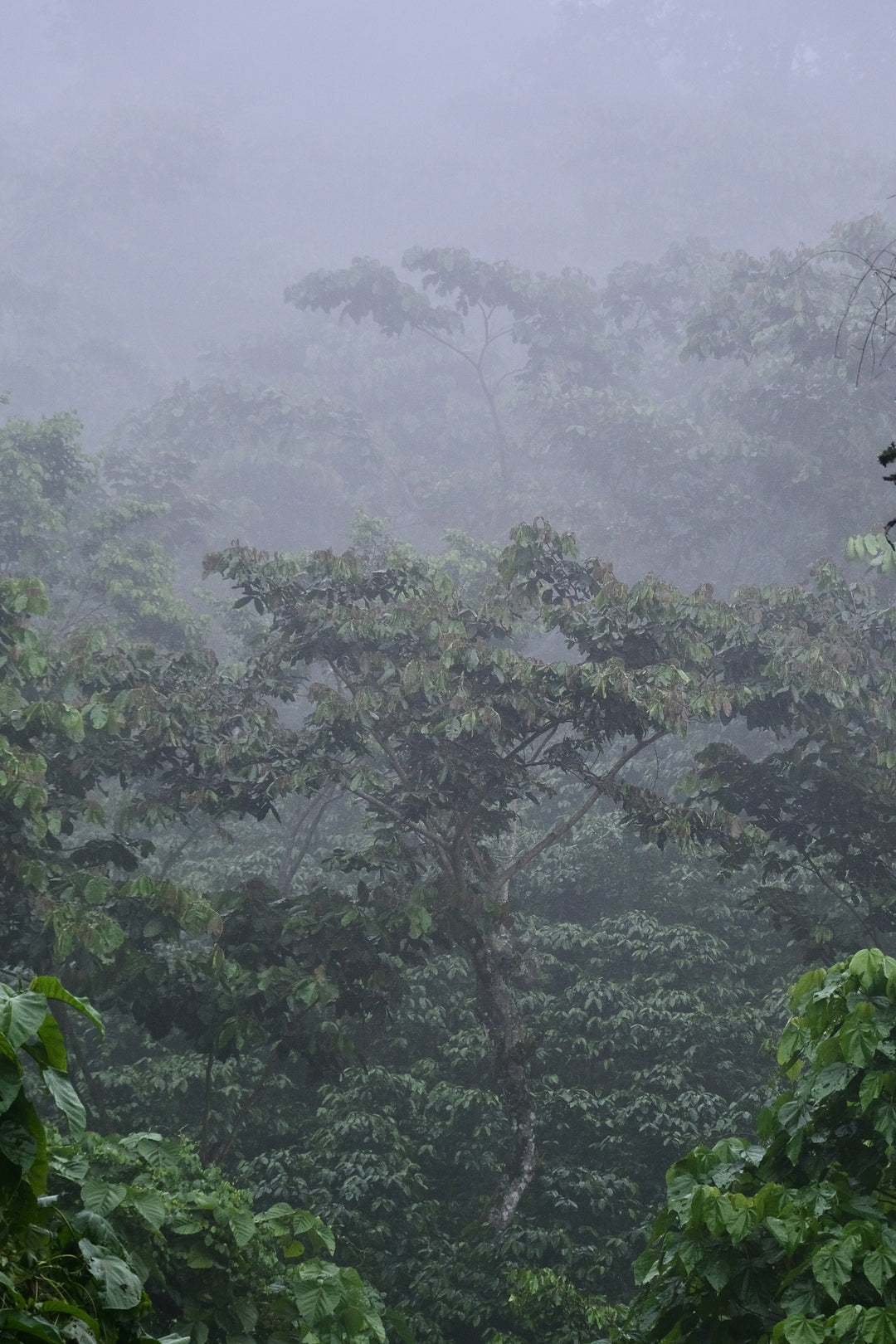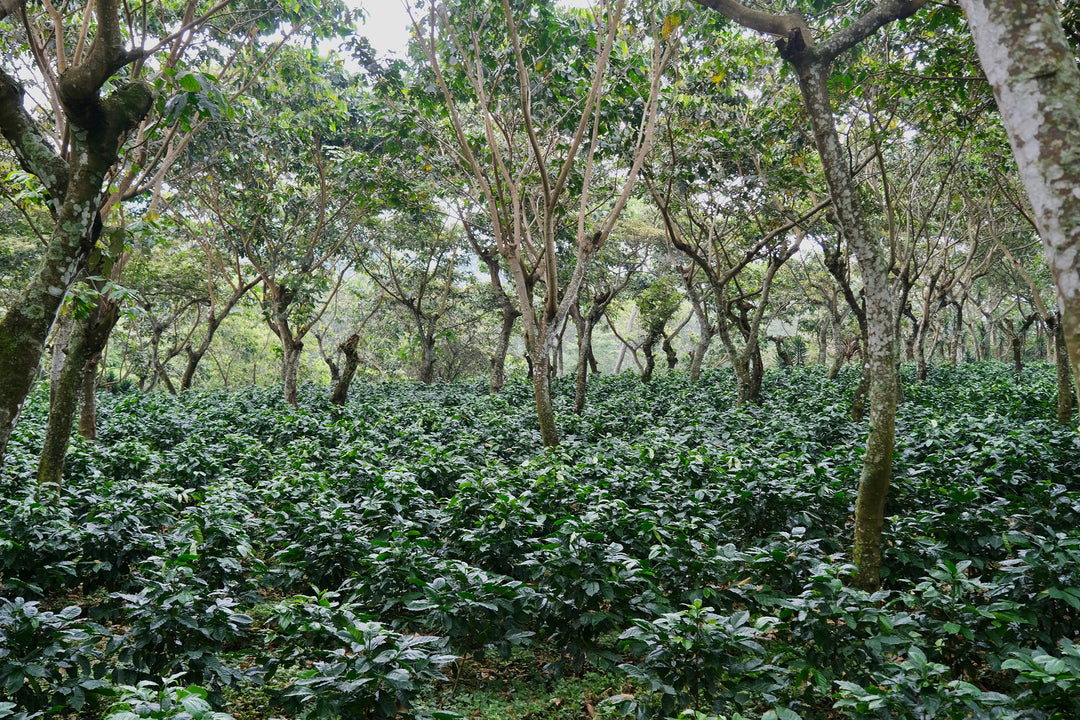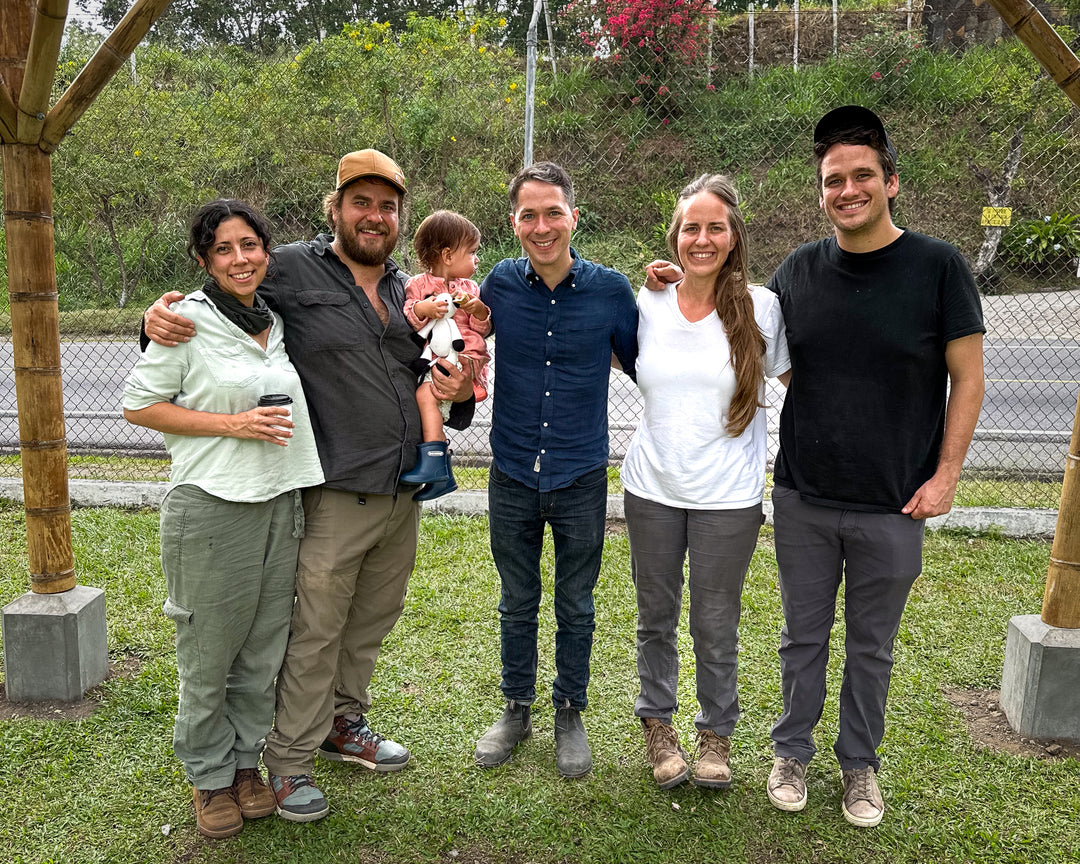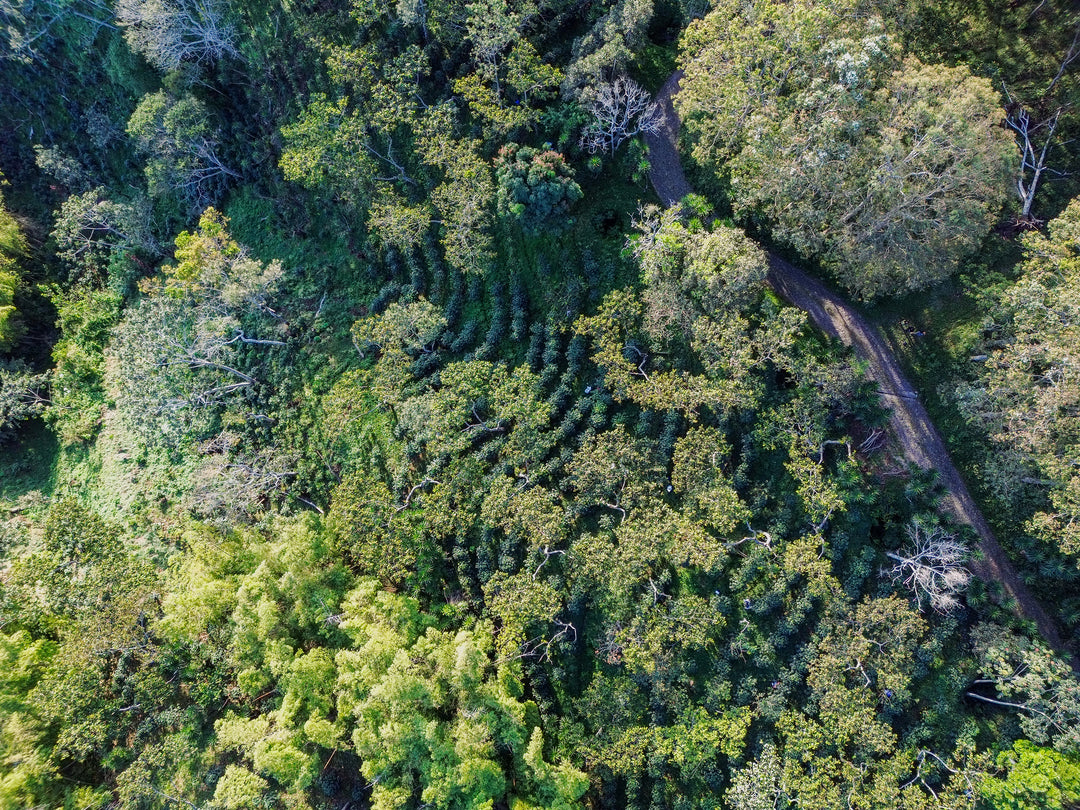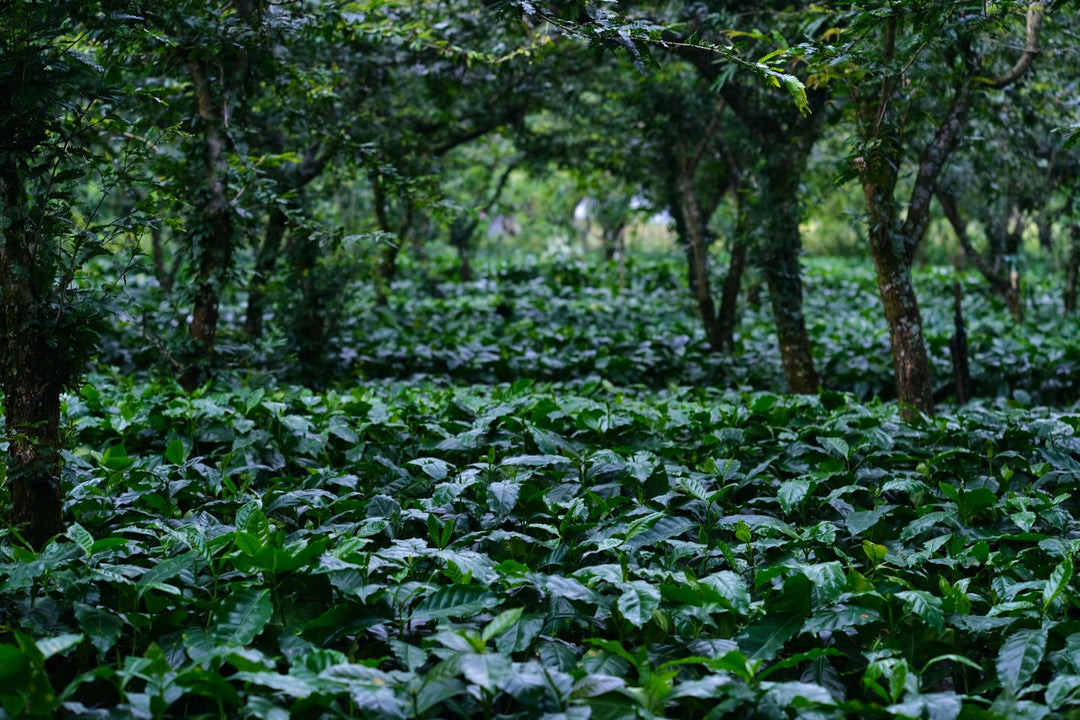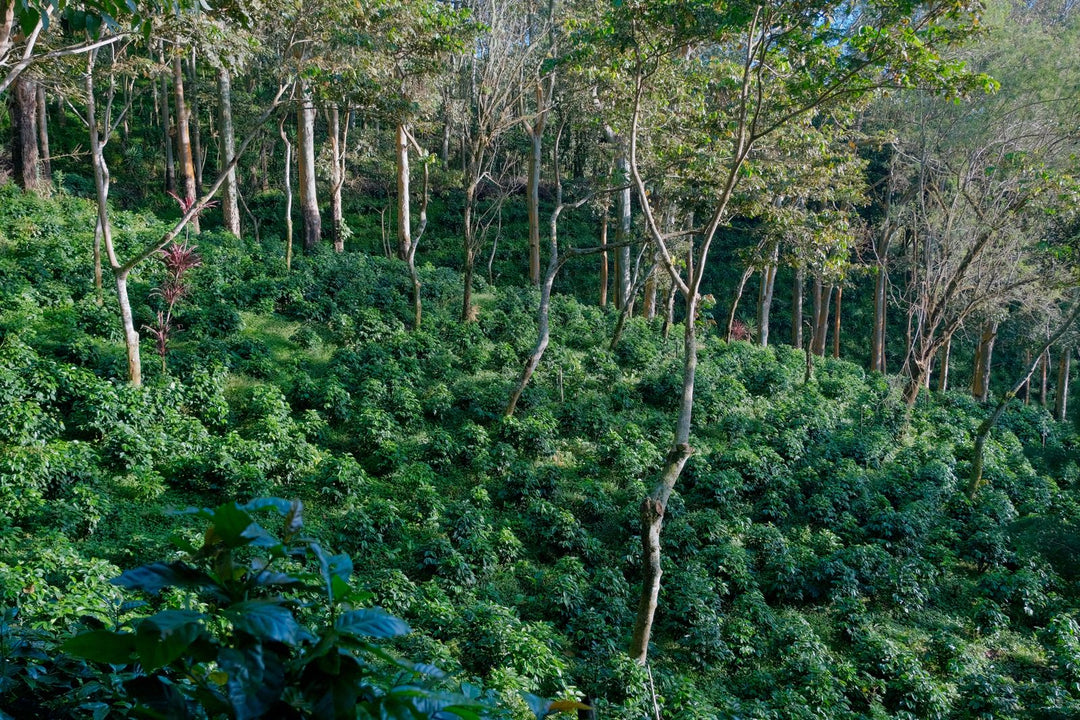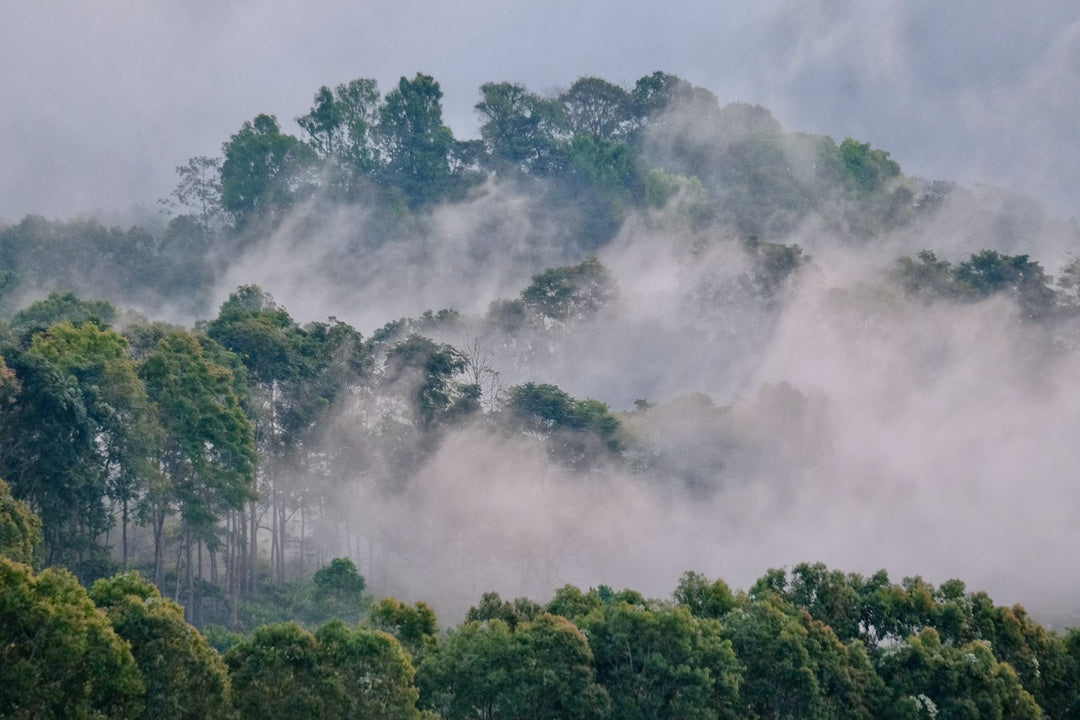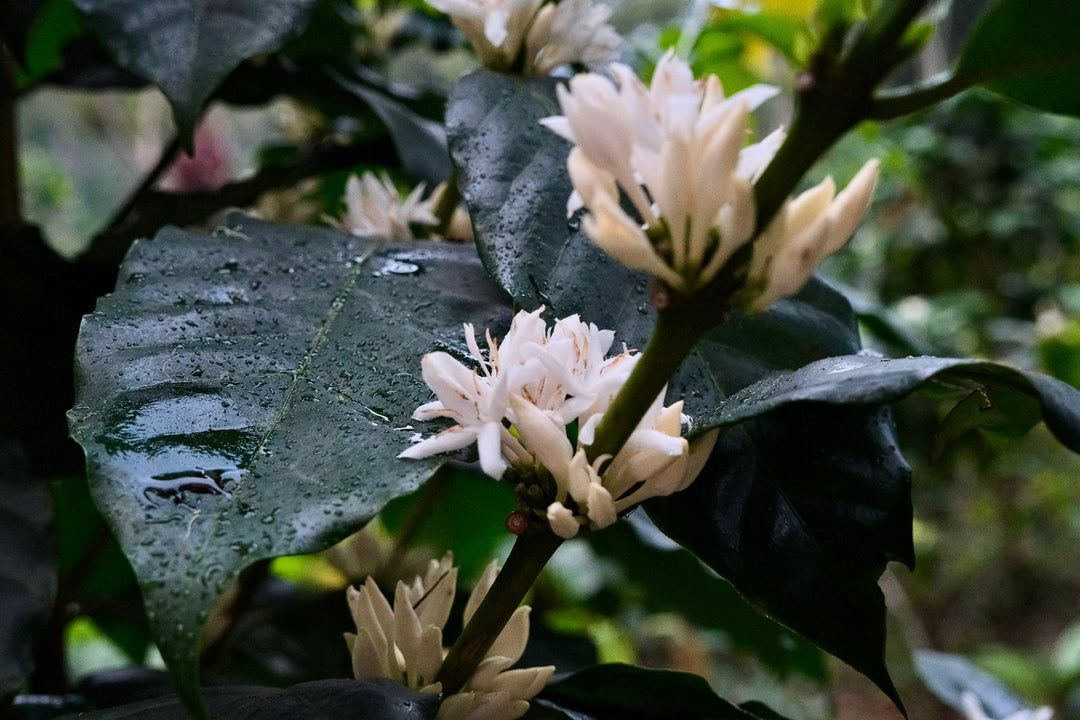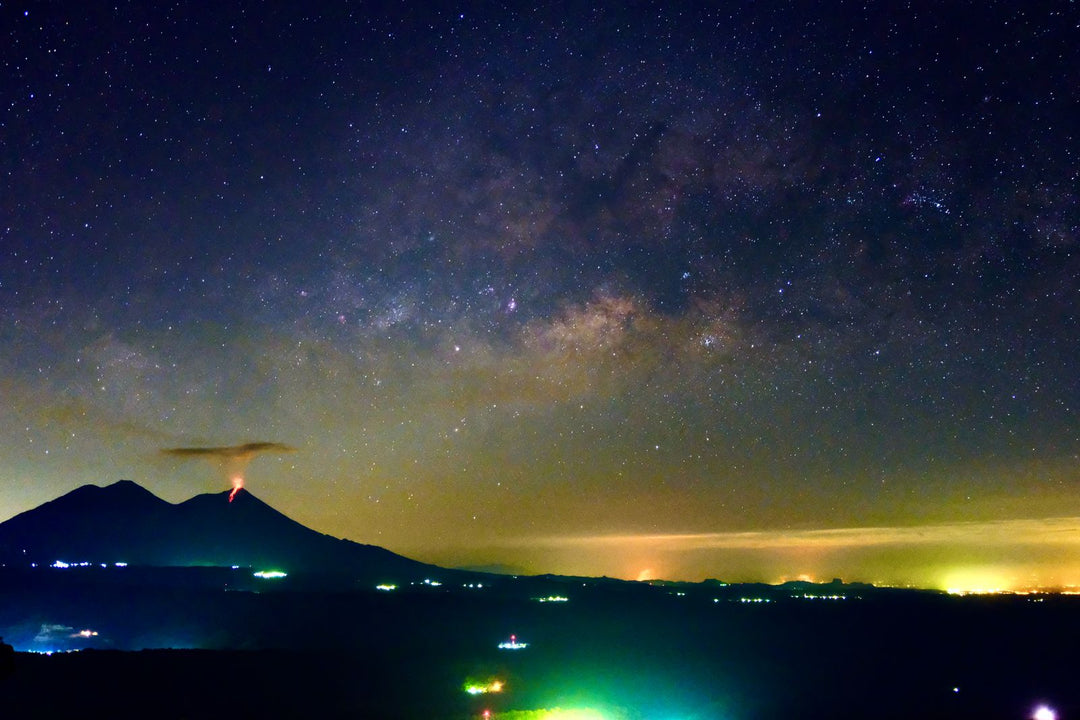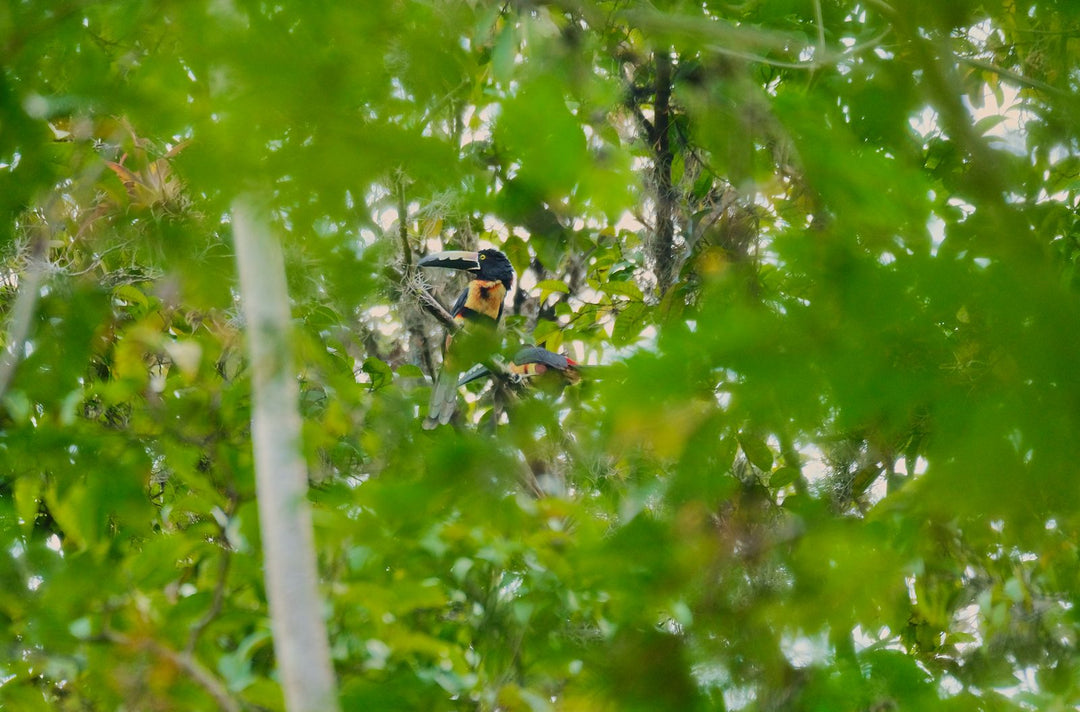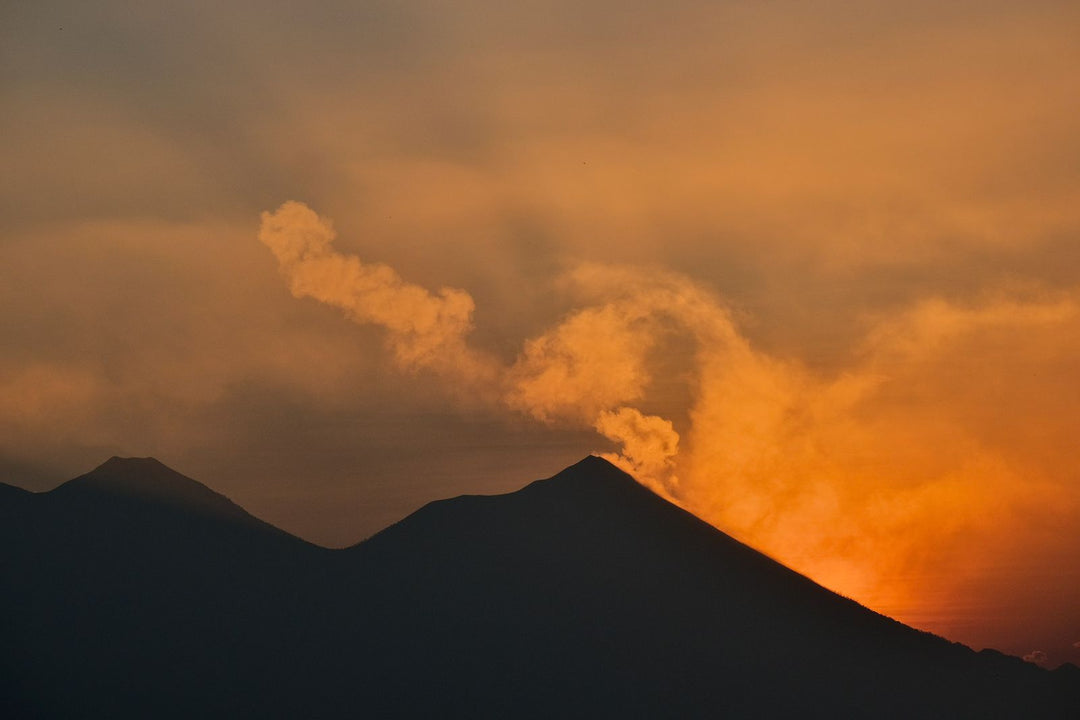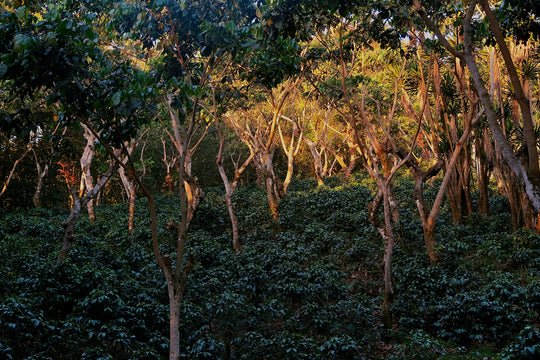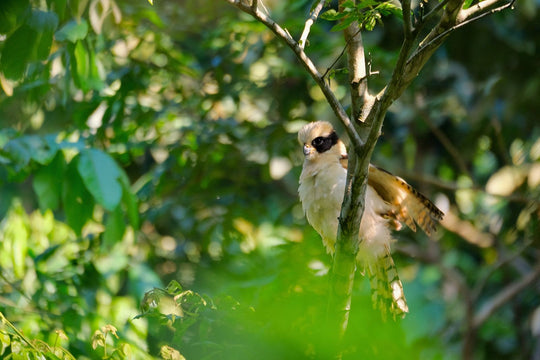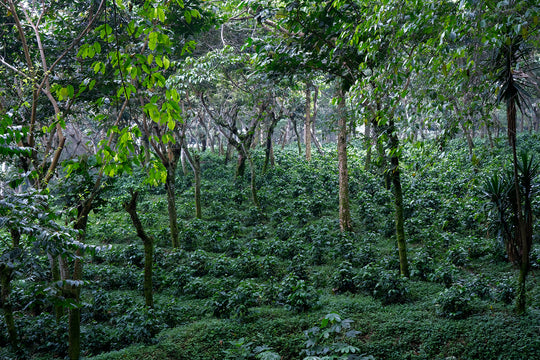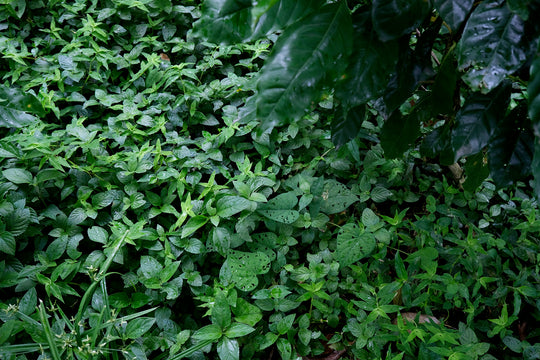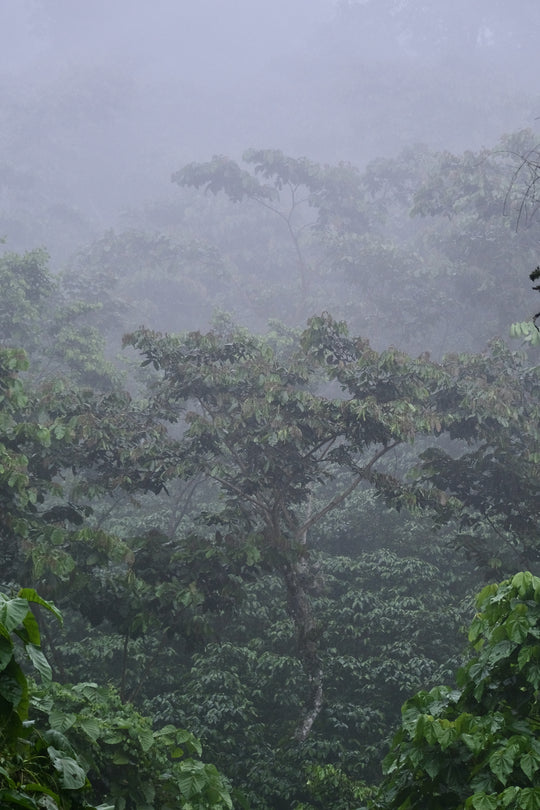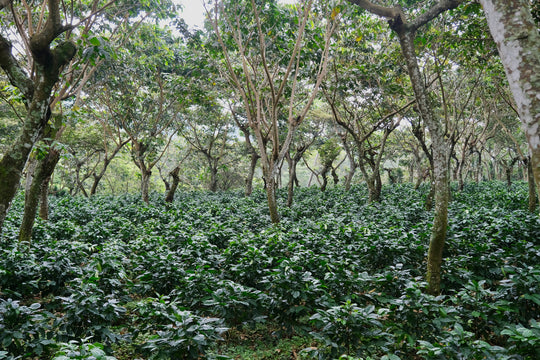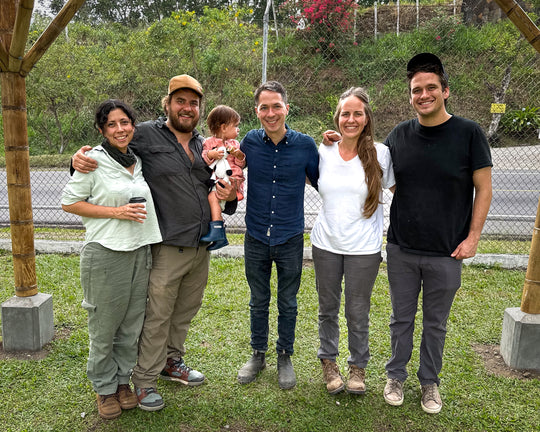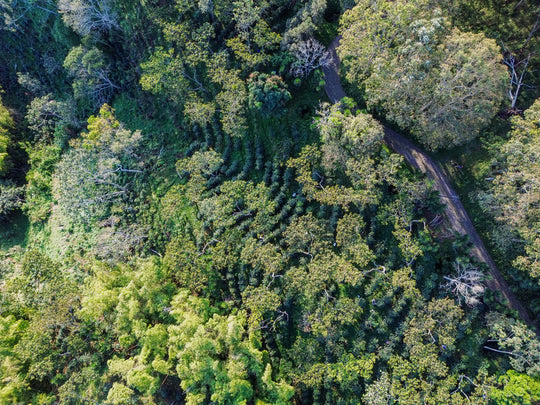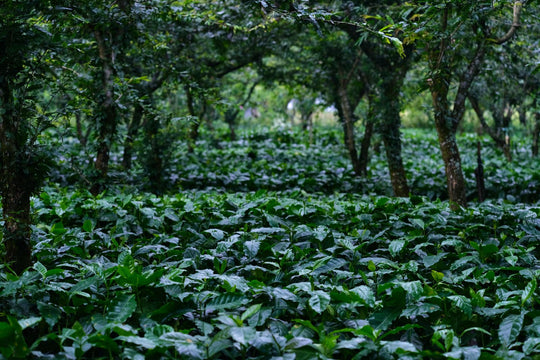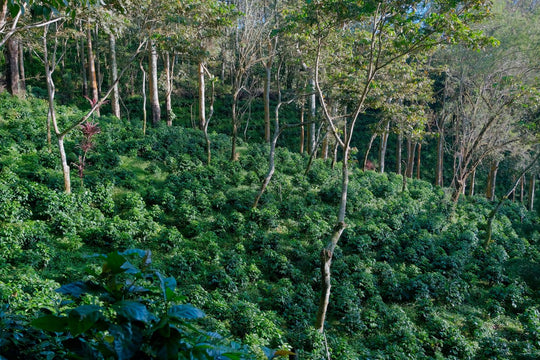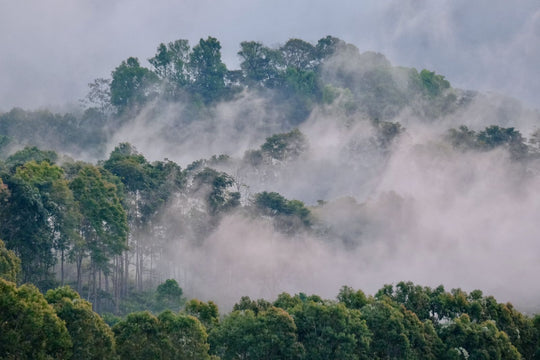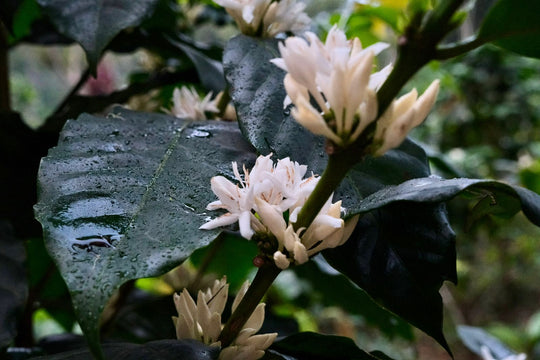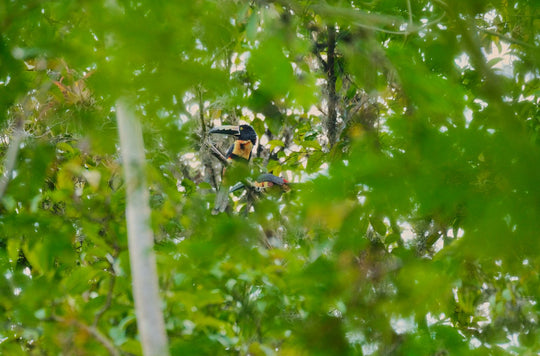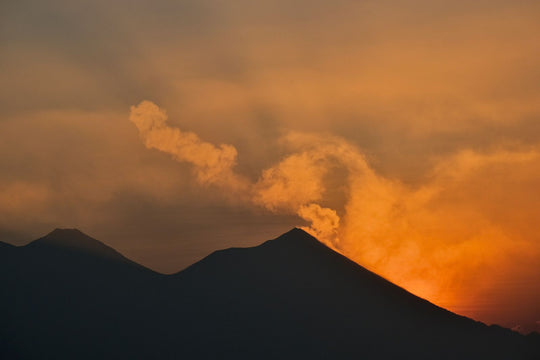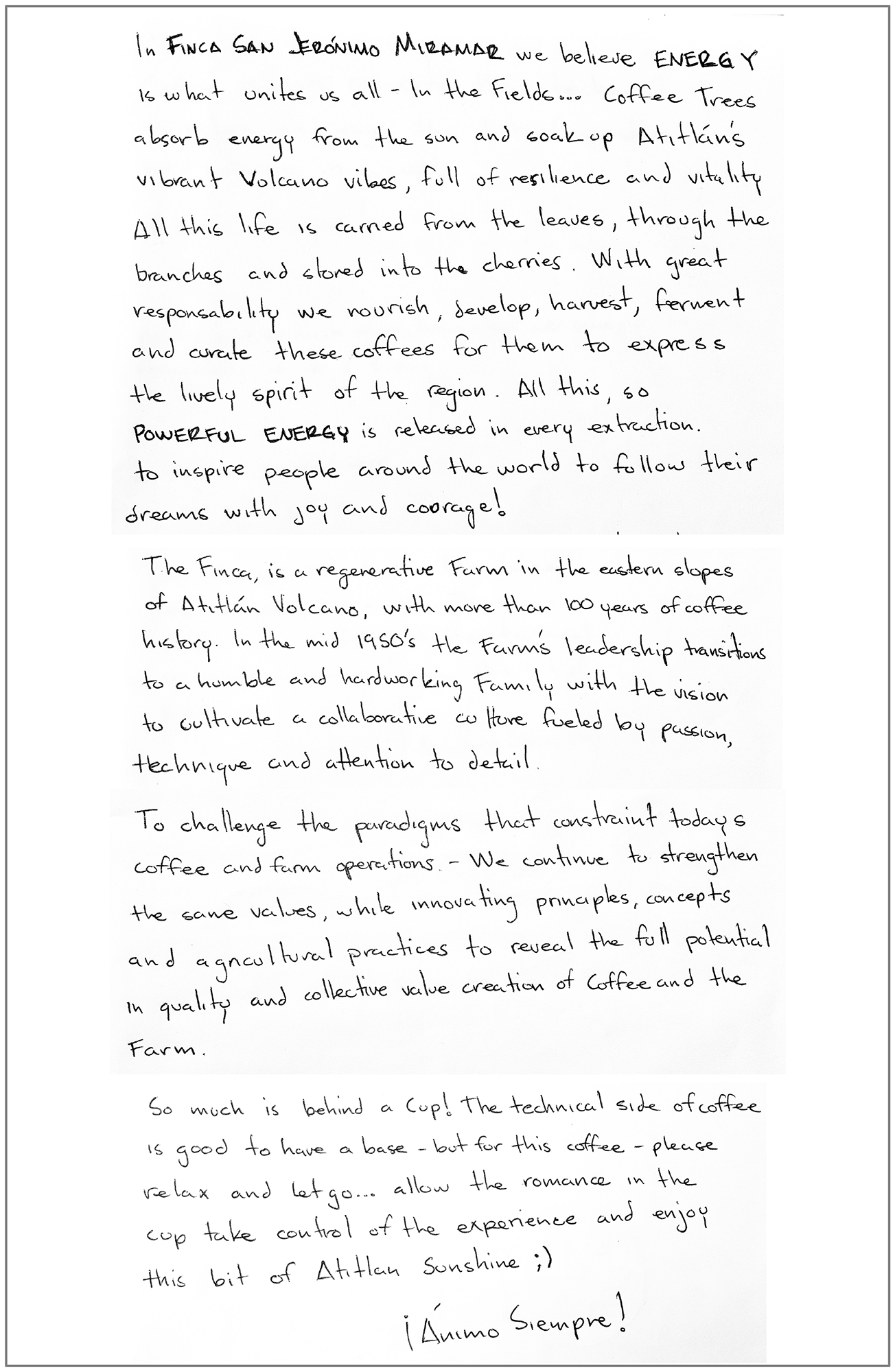018 - San Jerónimo Miramar
- Free U.S. shipping
2025 FREEZER SALE UPDATE (2025-12-17):
From Christopher: In the initial release of this coffee, I erred on the side of light—resulting in a coffee that needed significant rest but was clean and sugary in the cup. For the freezer release, we're aiming to push development slightly (but not too much!) further, to bring out a slight bit more of the raspberry tone coming from the honey-processed day lot that makes up about 30% of this lot.
The ninth coffee of our 2025 season takes us to the slopes of Volcán Atitlán where the Bressani family—fourth-generation coffee growers—operate a dairy and coffee farm, San Jerónimo Miramar, using a regenerative, agroforestry model. This gesha—adapted to their farm but originally from the CATIE collection—is an Aviary exclusive blend of three small day lots (two washed and one honey) presenting as a bright cup with notes of jasmine, tangerine, apricot, raspberry and pineapple.
From Christopher: "Most of the buying I do for Aviary is from smallholders whose primary source of income is coffee production. Smallholders produce the majority of the world's coffee and are very often not only among the most disadvantaged members of the value stream not only in terms of income and market access but also risk. Meanwhile, estates are not only larger in scale but commonly have owners whose privilege and access is greater than those of smallholders. Estates typically employ and house dozens or hundreds of people—entire communities in and of themselves—so while their impact can be greater than those of a smallholder, the burden for acting responsibly and doing less harm is even greater, still.
"But for that reason, I've long admired the work that the Bressani family—fourth generation coffee growers—are carrying out at Finca San Jerónimo Miramar. FSJM is a testament to what can be achieved when efforts, values and expertise are carried through generations over a century—and a showcase of how farm management can create resiliency for the future.
"I first purchased coffee from FSJM for Aviary's first season, in 2024, and made a point of visiting the farm ahead of the 2025 season so see the farm and its industry-leading soil fertility management programs up close. And the truth is that what I saw at FSJM gives me hope: it offers, I think, a tangible demonstration of how a different approach to coffee production—a fully-organic forest system with diversified revenue streams—could offer not only greater resiliency for producers in the face of climate change, but also stability in the face of market volatility.
"The focus at FSJM is the soil. I spent most of my visit with Giorgio Bressani, who manages the coffee production at FSJM, talking about nutrient cycling, and how layers of shade canopy create topsoil—improving humidity control, reducing the temperature of surface soil and feeder roots, mulching the trees with organic matter, preventing erosion and leeching of nutrients, and resulting in healthier, more disease- and climate-resistant trees.
"All of the efforts at FSJM don't just lead to healthier trees and more fertile soil—they create a microclimate. Walking just 10 meters at the edge of the farm to an adjacent property, I felt the texture of the topsoil change. Where on FSJM, topsoil is 3cm or more, here it was just a millimeter. the topsoil at FSJM below the surface is "cool enough to drink a beer" (all credit to Giorgio for that phrase) but at the adjacent farm, it's hot to the touch. The stress on the trees showed—with lower productivity and density in the nodes, less glossy leaves, higher defoliation, and a warmer ambient temperature.
"Economic resiliency and diversification is also at the heart of the system here. Coffee is just one revenue stream—also planted here are valuable cash crops like cacao, cardamom, fruits as well as hardwoods—with the the dairy operated by the family, first established by Giorgio's grandfather in the 1950s, providing true economic security. Even in difficult years for the coffee market, the farm is able to sustain not only the Bressani family but the hundreds of families who rely on the farm's operations for a living.
"The scale of effort at FSJM is matched only by the ambition of the team—which includes not only Giorgio and his siblings but 350 highly trained and precisely deployed pickers and a professional staff of experts who oversee everything from the nursery and breeding operation to composting to the pasturing of cows and pruning and maintenance of trees to replication of mycelium and wasps to combat broca—not to mention processing, drying, milling, and export, nor the dairy factory nor hydroelectric plant that generates the power for the farm, dairy, mill and town.
"The impressive infrastructure of FSJM is the work of literal generations—beginning with Giorgio's great-grandfather, Cesare, who started the family in coffee; expanded by his grandfather, Valentin, who built much of the infrastructure; re-invented by his father, Mark, the "Cheese Man" who laid the foundations for innovations in quality with a natural vision; and lived today by Giorgio and his siblings who brought the farm into the 21st century both in terms of farm practices and market access.
"While some projects in coffee are either focused on cloning, pure genetics and certified seed, FSJM employs dynamic genetic management at its nursery and in the fields, actively selecting and breeding the best performing trees based on their characteristics (disease resistance, yield, cup performance) and those seemingly best adapted to the farm. This means intentionally allowing adaptation and evolution to happen—encouraging resiliency while selecting for desirable traits while reducing genetic bottlenecks. For this reason, FSJM has unique cultivars in its collection that outperform their traditional counterparts both on the table and in the field.
"The Gesha planted on the farm originally came from the CATIE institute collection in Costa Rica, a descendant of the 1964 FAO mission to Ethiopia—but through farm management practices, is uniquely adapted to the microclimate and conditions at FSJM, rendering a somewhat different cup outcome and performance in the field.
"This coffee is a blend of three small day lots—two washed, and one honey process—that I selected after cupping through every separation of Gesha produced by the team at FSJM during the 2024 harvest. In the cup, this coffee presents bright and vibrant with notes of tangerine, apricot, raspberry, jasmine and pineapple."
This coffee was roasted the week of September 8, 2025 and again on December 18, 2025.
TASTING NOTES: Bright, jasmine, tangerine, apricot, raspberry and pineapple
ROAST: Light, to accentuate the structured acidity and florality of this coffee and present its fruited character as ripe and juicy
ACIDITY: Bright citric acidity
FUNK: The smallest of the three day lots blended to make this lot was a honey process with fruity by slightly funky notes; this is mitigated by the fact that the blend is predominantly washed coffee; it may experience slight funkiness as it ages or depending on cup variance but in most cases should render clean and fruited.
FOR FANS OF: Multi-generational producers; locally-adapted exotic cultivars; agroforestry; self-determination
FARMGATE PRICE: self-exported
FOB PRICE: $18.00 per lb
LANDED PRICE: $19.78 per lb
This lot was produced with cherry collected on three days in February 2025 from the small plot of Gesha planted at Finca San Jerónimo Miramar. Because FSJM is an estate, they did not have to purchase the cherry; rather, their costs are associated with the cultivation, management, harvesting, post-harvest processing, storage and export of the coffee.
Because they self-export, the Bressani family received 100% of the purchase price less the shipping costs (this coffee was shipped over the water to Houston and then freighted to Cleveland via LTL shipping).
During the harvest season in Guatemala, the c-market experienced a record-breaking rally, closing at over $4 per pound, roughly double the previous year. This elevated export prices across Guatemala as a whole; the Geshas at FSJM, however, due to their lower yields and lower volume of production, always sell for a premium.
Gesha coffee grown using organic methods at 1,524 masl in Panimaquib, Guatemala by the Bressani family; selectively hand-picked at peak ripeness; sorted; floated; pulped using a McKinnon disc pulper and graded by density; fermented dry for 24 hours in open concrete tanks; washed and graded using traditional channels; dried on raised beds in a solar house for 12-15 days; conditioned in Grainpro in the warehouse for 4 weeks.
This one is deceptive; it looks fully expanded and developed from the outside because of the way its density interacts with the roast, but it is quite light. Like other geshas, it may present woody or slightly toasty until it has rested sufficiently—at which point it will open into more fruit and floral notes. I recommend resting this coffee for likely 3-5 weeks from its roasted date filter brewing and 5-6 weeks for espresso-style preparation (though you may wish to try it earlier to enjoy how the coffee changes and opens over time).
As filter, I prefer a ratio of 1:17 using low-agitation methods of extraction resulting in 22-23% EY.





